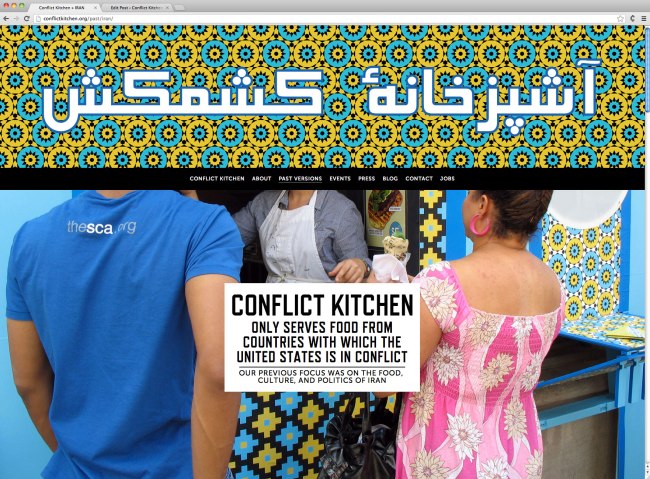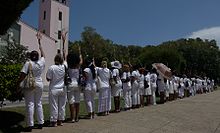Conflict Kitchen is a restaurant that only serves cuisine from countries with which the United States is in conflict. Each Conflict Kitchen iteration is augmented by events, performances, and discussions that seek to expand the engagement the public has with the culture, politics, and issues at stake within the focus country. The restaurant rotates identities every few months in relation to current geopolitical events.
Our current Cuban version introduces our customers to the food, culture, and thoughts of people living in Cuba and those that have immigrated to the U.S. Developed in collaboration with members of the Cuban community, our food comes packaged in wrappers that include interviews with Cubans both in Cuba and the United States on subjects ranging from culture to politics. As is to be expected, the thoughts and opinions that come through the interviews and our programming are often contradictory and complicated by personal perspective and history. These natural contradictions reflect a nuanced range of thought within each country and serves to instigate questioning, conversation, and debate with our customers.
Operating seven days a week in the middle of the city, Conflict Kitchen uses the social relations of food and economic exchange to engage the general public in discussions about countries, cultures, and people that they might know little about outside of the polarizing rhetoric of governmental politics and the narrow lens of media headlines. In addition, the restaurant creates a constantly changing site for ethnic diversity in the post-industrial city of Pittsburgh, as it has presented the only Iranian, Afghan, and Venezuelan restaurants the city has ever seen. Upcoming iterations will focus on the U.S. involved boarder conflicts of North/South Korea and Palestine/Israel.

